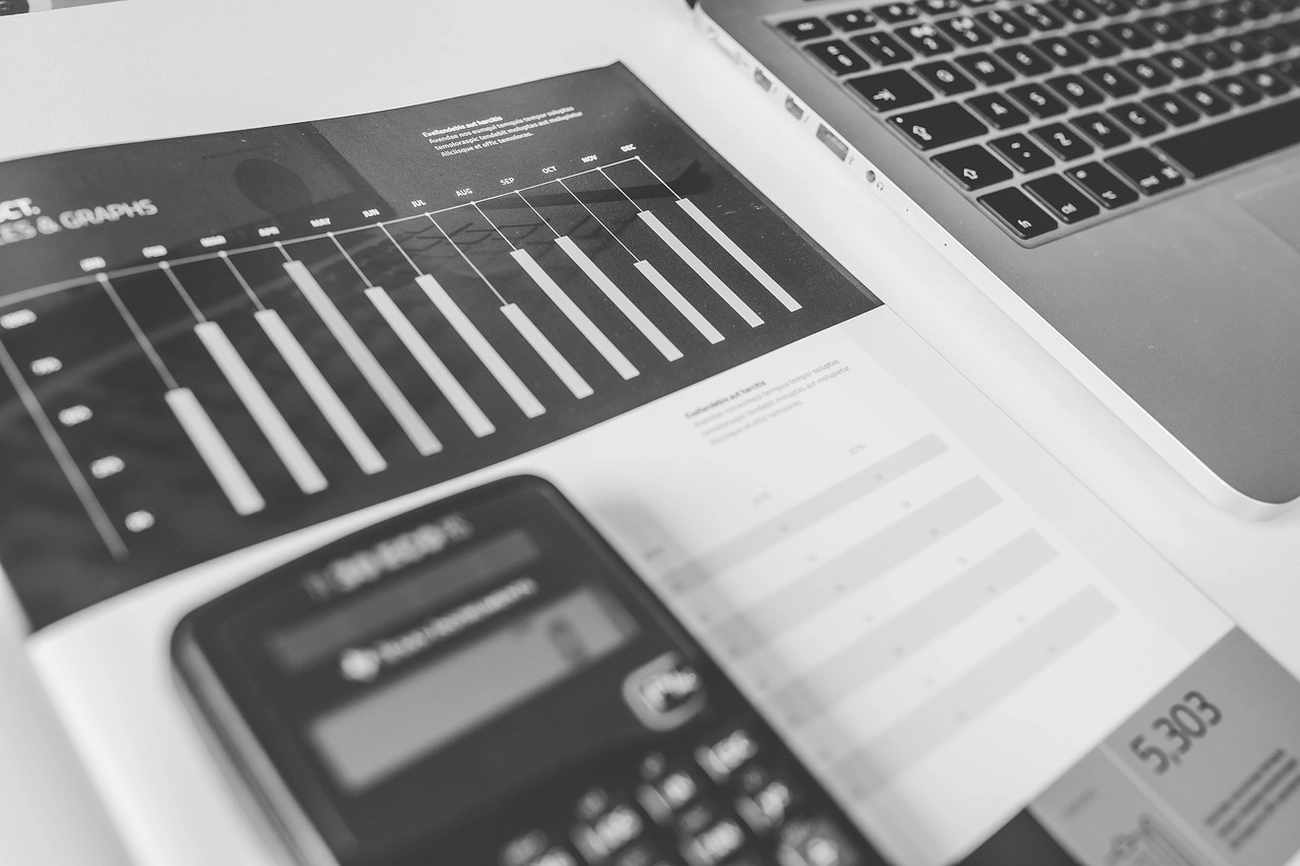Bookkeeping errors affect all entrepreneurs, no matter whether they run small or large companies. Incorrect bookkeeping can lead to serious legal, tax and financial problems. Fortunately, there are quite a few ways to avoid these pitfalls. In this article, we will discuss the most common accounting mistakes and how to avoid them.
The most important information
- In order to avoid accounting mistakes, it is important to choose the right accounting system.
- Documentation of transactions should be accurate and precise.
- The correct date of the transaction should be established.
- Keeping track of legal regulations and tax laws is essential to ensure correct bookkeeping.
- Account classification must be done correctly.
- Payables and receivables must be managed in a timely manner.
Introduction
Accounting errors are a common problem among entrepreneurs. They usually involve incorrect tax settlements, failure to update data or incorrectly issued invoices. All of these errors can have a negative impact on your finances and your company’s reputation. The most important thing is to prevent such situations by following proper accounting procedures. Here are some of the most common pitfalls and how to avoid them:
- Disorganizeddocuments: it is important to keep your accounting documents well organized. If documents are disorganized, this can lead to mistakes and delays in tax settlements.
- Incorrect tax returns: make sure that tax returns are correct and up-to-date. Also make sure that all insurance premiums are paid on time.
- Failure to update your data: regularly updating your accounting data is key to keeping your tax returns correct. Any changes in addresses, employee information, etc. should be monitored regularly.
- Improper invoicing: invoices should be issued in accordance with applicable regulations. You should also make sure that invoices are sent on time and contain all the necessary information.
Proper bookkeeping is important for any businessman, as it has a direct impact on the company’s finances and reputation. Avoiding these mistakes will help you avoid tax, financial and legal problems. Following the right procedures can also have a positive impact on your business.
The most common accounting pitfalls
The most common accounting mistakes are:
- Improper accounting for taxes.
- Missing or incorrectly entering documents into the accounting system.
- Inaccurate or out-of-date reports.
- Incorrect asset valuations.
- Improper use of financial ratios.
To avoid these pitfalls, do the following:
- Update your reports and accounting regularly.
- Maintain compliance with accounting and tax regulations.
- Know all applicable regulations and comply with them.
- Regularly review your accounting data and records.
- Enlist the help of a professional accountant or tax consultant.
Mistakes in choosing an accounting system
Choosing the right accounting system is one of the most important factors in determining the success of a business. Choosing the wrong system can have serious consequences. There are many things to pay attention to when choosing an accounting system.
The first thing to remember is that the system should be tailored to the company’s requirements. You should check that the system offers all the features you need, such as integration with non-accounting applications, as well as automation features and data reports. It’s also important to make sure the system meets the regulatory requirements for your industry.
The second thing is to make sure the system has the right level of security. It must include encryption and password protection mechanisms, as well as safeguards against viruses and hacker attacks. The system should also offer regular data backups.
Another important thing is to familiarize yourself with the terms of the license and pricing of services. Make sure the terms and conditions are clear and easy to understand, and check that the prices are adequate for the services offered.
Finally, it’s also a good idea to check other users’ reviews of a particular accounting system. Ask questions of people who have already used it and ask for their opinion on performance, features and technical support.
If you approach the selection of an accounting system very carefully and carefully analyze all its aspects, you can avoid making a mistake and choose the right system for your business.
Inaccurate documentation of transactions
Inaccurate documentation of transactions is one of the most common accounting mistakes. What is written down today may be of vital importance tomorrow. To avoid problems, make sure that all transactions are documented in detail.
The most important information that should be included in transaction documentation is:
- Date of the transaction
- Description of the transaction
- The amount of the transaction
- Information on the third party, if applicable
All of this information should be completed before the transaction takes place. If data is entered into the accounting system, make sure it is correct and detailed. Whether you do the bookkeeping yourself or hire someone to do it, it is important to take it seriously and avoid rushing.
Remember to have all the necessary documents and information in your database so that you can easily reconstruct information about each transaction.
Incorrectly setting the transaction date
The transaction date is a key element in any financial report. This is especially important for companies that do business around the world. Errors in date setting can lead to incorrect tax calculations or non-compliance with laws and regulations. The consequences of such errors can be serious and dangerous for a company.
To avoid errors related to transaction dates, you should:
- Use a uniform date format, used in all financial reports.
- Be mindful of temporal differences between time zones.
- Check transaction dates to make sure they are correct.
- Use an information system to automatically set dates.
If companies follow the above recommendations, it will be possible to avoid problems related to incorrect date setting.

Wrong interpretation of regulations
One of the most common mistakes made by entrepreneurs is the wrong interpretation of legal regulations. Entrepreneurs often do not know all the regulations on bookkeeping, which can lead to serious problems. To avoid such situations, you should:
- Understand all applicable accounting and tax laws.
- Talk to professionals to make sure you have a good understanding of all regulations.
- Update your knowledge regularly to make sure everything is legal.
- Use professional accounting tools to make sure you don’t make mistakes.
Avoiding mistakes in interpreting regulations is important for any business. This will help you avoid many financial and tax problems and ensure correct bookkeeping.
Improper classification of accounts
One of the most common mistakes made in accounting is the incorrect classification of accounts. Incorrect classification of accounts can lead to erroneous conclusions about the company’s financial position and incorrect interpretation of financial data.
The best way to avoid this mistake is to check accounts carefully and regularly and classify them correctly. To achieve this, you need to know and apply the International Accounting Standards (MSSR). It is important to know which items should be classified as expenses, income or fixed assets.
It is also necessary to conduct regular audits and financial analysis. This allows you to assess the correct classification of accounts and make sure they are classified properly. Any discrepancies should be reported immediately and corrected. Otherwise, they can lead to serious legal, tax and financial problems.
In conclusion, it is important to avoid account classification errors by using MSSR, checking accounts regularly and performing audits. This will help prevent accounting errors and ensure that the company is operating properly.
Failure to manage accounts payable and accounts receivable
Failure to manage accounts payable and accounts receivable is one of the most common accounting mistakes. Improper management of your accounts receivable can result in late payments, which often leads to financial problems. To avoid such problems, follow some basic guidelines:
- Set up a system to monitor all your receivables. Make sure you use the right techniques to monitor and remind you of overdue payments.
- Create a quality control system for your invoices. Make sure the information on your invoices is correct and up-to-date.
- Update your ledgers and journals regularly. Updating your books and journals regularly will help you avoid erroneous payments and problems with your contractors.
- Always check your books for erroneous entries. Mistakes are easy to fix, but difficult to detect.
By following these simple tips, you can avoid very common accounting mistakes, such as mismanagement of receivables. By doing so, you can be sure that your business will run smoothly.
How to avoid accounting errors?
In order to avoid accounting errors, there are several important rules to follow. First of all, it is important to keep regular and accurate accounts. It is also necessary to familiarize yourself with all accounting and tax laws and regulations. Here are some specific ways you can use to avoid accounting mistakes:
- Adhering to legal regulations: It’s best to consult a tax advisor or accounting specialist to make sure your operations are in compliance with applicable laws.
- Keeping accurate records: Keep accurate records of all financial transactions and operations. This way you can make sure that all information is correct and compliant.
- Keeping records: It is important to keep all documents and invoices that may be needed to establish or document financial transactions or operations.
- Checking and correcting errors: If an error is made, it should be corrected immediately. It is best to have a monitoring system that will inform you of any errors.
To avoid problems associated with poor bookkeeping, follow the above tips. This will help you avoid problems and keep all your finances in order.
Choosing the right accounting system
Choosing the right accounting system is a key element for avoiding accounting errors. The system should be easy to use, adaptable to your company’s needs and include all the necessary functions. Fortunately, there are many accounting systems tailored to the needs of different businesses. Here are some tips on what to look for when choosing the right system:
- Range of functions: Make sure the system has all the necessary functions, such as financial analysis, reporting and budgeting.
- Integration with other systems: Make sure the system can be integrated with other systems and software used in the company.
- Security features: The system should have adequate security features to protect data from loss and breach.
- Customer support: Make sure the manufacturer offers technical support and training to help you use the system.
Choosing the right accounting system is key to avoiding accounting mistakes. Entrepreneurs should carefully analyze their company’s needs and available options before deciding on the right system.

Accurately documenting transactions
One of the most important steps in the accounting process is to document all transactions. Whenever possible, keep original documents such as invoices, receipts and other confirmations of transactions. All of this information should be kept in well-marked and secure files. Next, all transactions should be documented in detail. It is important that all transactions are accurately described and include all available information. This will give you full control over your finances.
Also, it is important that all transactions comply with applicable tax laws and regulations. After each transaction, you should check that it has been correctly recorded in your accounting documents. If not, you run the risk of having to pay punitive interest and/or answer to the court.
To avoid accounting errors, you should also make sure that your systems are always updated and encrypted. If you have an accounting software program, make sure the solution is secure and has the latest updates. Maintaining secure IT systems will help you avoid cybercrime problems.
Determine the correct transaction date
Transaction dates are important to ensure accounting accuracy. An incorrectly entered date can have serious consequences, especially when it comes to calculating taxes or running financial reports. That’s why it’s important to make sure all dates are correct and reflect actual data. Here are some tips on how to avoid erroneous dates:
- Maintain a calendar of transactions. The calendar should include all important dates, such as payments or the end of a reporting period. Make sure your employees are aware of these dates and that they are entered correctly into the system.
- Create a procedure. It is recommended that you create a date procedures document. These should specify the exact rules for entering dates into the system and how to verify them.
- Preserve the historical path. Create a procedure that will allow you to restore the correct dates in case of an error. For example, you can keep a paper or electronic copy of each transaction.
If you follow these guidelines and carefully verify each date, you can minimize the risk of accounting errors.
Keep track of regulations and tax laws
Running a business requires keeping track of legal regulations and tax laws. Entrepreneurs need to know what obligations they have to the state and what their rights are. Unfortunately, many people make mistakes in this area that can result in serious consequences.
In order to avoid such mistakes, it is important to regularly follow changes in legal and tax regulations and inform yourself about new regulations. It is also important to constantly monitor updates to accounting software to ensure that the entrepreneur always has access to up-to-date information.
It is also a good idea to set up a system for checking and verifying documents before sending them to an accounting firm or tax office. This will avoid mistakes and reduce the risk of errors.
It is also a good idea to consult with professional advisors on a regular basis to make sure you are complying with all applicable laws and tax regulations. Regular meetings with business advisors or accountants can help an entrepreneur avoid the pitfalls of bookkeeping.
Correct account classification
Correct account classification is an important aspect of proper bookkeeping. It makes it easy to monitor financial expenses and revenues, manage budgets and facilitate the creation of financial statements. To avoid mistakes, entrepreneurs should know the basics of account classification:
- Revenue accounts: These accounts are used to record all income, such as sales of products or services, loans, investment income, etc.
- Expense accounts: These accounts are used to record all expenses, such as the purchase of goods and services, business-related fees, taxes, etc.
- Asset accounts: These accounts are used to record all company assets, such as cash, real estate, machinery, etc.
- Liability accounts: These accounts are used to record all the company’s liabilities, such as loans, payables to suppliers, etc.
Accurately managing accounts and avoiding misclassifications is essential for correct accounting. Therefore, it is important to make sure that each transaction is properly classified and that all information is recorded accurately.
Managing accounts payable and accounts receivable on time
One of the most common mistakes made in accounting is managing accounts payable and accounts receivable on time. Many entrepreneurs simply forget to pay their obligations on time, which can lead to serious financial problems. To avoid such situations, it is important to meticulously monitor all receivables and make sure they are paid on time.
Here are some tips to help you avoid accounting errors related to accounts payable:
- Create a repayment schedule for all your accounts payable and make sure they are monitored closely.
- Set up a support system that will automatically send reminders regarding upcoming payments.
- Set up notifications on your phone or computer to get reminders about scheduled payments.
- Lack of time? Hire an accounting firm or bookkeeper who can monitor your financial obligations.
Remember: avoiding accounting mistakes is essential to maintaining high financial and legal standards.
Summary
In conclusion, accounting errors are common and have a significant impact on a company’s finances. Fortunately, there are ways to avoid them. The most important thing is to be aware of the most common accounting pitfalls and implement effective procedures to help avoid these problems. First and foremost, it is important to focus on accuracy and good time management. In addition, it is important to make sure that data is updated and correct. It is also important to ensure that all transactions are well accounted for. Recently, using accounting professionals can be useful for companies that don’t have the experience or time to do their own bookkeeping.
Remember that accounting mistakes can have serious repercussions for your business. Therefore, it is important to know the risks and use the right procedures and tools to avoid accounting mistakes.
Frequently asked questions
How do I choose an accounting system to avoid mistakes?
Choosing the right accounting system is a basic step to avoid accounting mistakes. The system must be easy to use, intuitive and provide access to data at all times. The size of the company, its specifics and the sector in which it operates should be taken into account. To choose the best system, seek advice from specialists, take advantage of free trial periods or check user reviews.
Is documenting transactions important to avoid accounting errors?
Yes, documenting transactions is very important to avoid accounting errors. These documents should include details about the date and type of transaction, the entity making the transaction, and the amount of the transaction. It is important that all documents comply with applicable regulations and contain all required information. Keeping records is also very important, as they may prove useful in the event of an audit or dispute over the transaction.
How important is it to determine the correct transaction date?
Determining the correct date of a transaction is very important for keeping your accounting records in order. An incorrectly set date can result in a transaction being incorrectly assigned to a specific financial period. Therefore, it is important to make sure that all transactions are executed and documented according to the established schedule.
How important is it to keep track of legal regulations and tax laws?
Keeping track of current legal regulations and tax laws is an extremely important part of bookkeeping. Compliance with these regulations is necessary to protect the company from serious legal and financial problems. Therefore, you should regularly keep track of any changes and updates in legal and tax regulations to avoid problems
Is account classification important to avoid accounting errors?
Yes, account classification is very important in avoiding accounting errors. Classification allows you to organize and keep your accounts in order. Correct classification of accounts helps the entrepreneur to track transactions and prevent errors. It is recommended that the entrepreneur create clear and properly worded categories and subcategories to avoid confusion.
How important is accounts payable and accounts receivable management?
Management of payables and receivables is very important in bookkeeping. You should regularly monitor your accounts payable and accounts receivable to make sure they are paid on time. Late payments can lead to legal or financial problems, so it is important for entrepreneurs to check their accounts payable and accounts receivable regularly to avoid these pitfalls.
Can preparing multi-year financial forecasts be helpful in avoiding accounting errors?
Yes, preparing multi-year financial forecasts can be helpful in avoiding accounting errors. Preparing a long-term financial plan allows you to better understand potential risks and opportunities in the future, which can help an entrepreneur avoid accounting mistakes. Financial projections will help you better budget and set long-term goals, which will increase the chances of avoiding mistakes.
How can automation help avoid accounting errors?
Automating accounting processes can help minimize the risk of errors. Using accounting software and inventory systems makes data more precise and documentation easier to organize. Automation also allows better time management and reduces potential human factor issues. Using accounting software and warehouse systems on an ongoing basis can help avoid accounting errors.
Can outsourcing accounting services help avoid accounting errors?
Yes, outsourcing accounting services can help avoid errors. While bookkeeping on your own can be time-consuming and difficult to manage, accounting professionals have much more knowledge and experience. When choosing an accounting service outsourcing offer, it is worth noting whether the company is registered with the relevant institutions and whether its specialists are licensed and qualified. In this way you can avoid mistakes that can have serious consequences.




